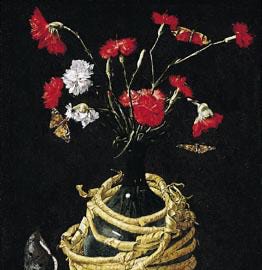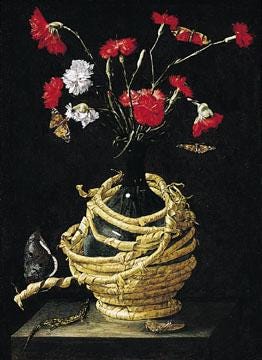For full citations and meaning of abbreviations, see Introduction and Bibliography.
Gurdjieff wrote about cancer as “this terrible human scourge”1 and later called it “the most terrible contemporary scourge.”2 He also devotes a number of pages in Chapter 41 of his first series to the treatment of cancer by an unconventional means, as well as by X rays, “which the representatives of contemporary European medicine employ.”3 Strikingly, he also mentions, almost in passing, in the Prologue of the third series, his interest in “the cure of cancer by the power of suggestion.”4
It is often a question, in Gurdjieff's writings, and in the record of his talks and conversations, whether he is relating something in an allegorical or a literal manner, or, perhaps most often, partaking of both. So, his use of the word “cancer” may be read in its ordinary sense, yet there may also be the possibility of it referring to something else.
Gurdjieff himself apparently died of liver cancer.5 He describes his mother as dying from “a long-standing illness of the liver,”6 which may or may not have been cancer. His grandmother died from cancer of the liver.7 Gurdjieff's wife had cancer,8 dying at the age of thirty seven, and his brother died from “cancer of stomach and intestines.”9 Thus, cancer played a big part in Gurdjieff's life.
The material in The Bokharian Dervish in the first series, which strikingly mirrors Gurdjieff's wife's illness of cancer, and of his own inability to help her because of his near-fatal automobile accident of 1924, also contains much on “the science of vibrations.” It interesting to reflect whether the story within that chapter about the monotonous melody of five tones played on the piano that caused the withering of a pot of flowers10 could actually (also) have been referring to a cure for cancer. There is a record of Gurdjieff using the word flower to refer to cancer in the notes of Solita Solano. She writes of Gurdjieff’s brother:
Dimitri died in the last week of August. I was sitting in the Café de la Paix with Mr. Gurdjieff that morning and he told me the story. He had managed to keep the cancer inactive for twelve years, but when Dimitri quarrelled with him three or four months ago, he went to a German doctor for relief and that doctor had given him a medicine that was poison for him, made the “flower” grow on the cancer. “When they sent for me at last, it was too late…”11
Gurdjieff was not known for his love of flowers, except for roses, and then only with thorns.12
BT p.911.
L p.37.
BT p.913.
L p.26.
E.g., GWR p.221, p.227 and p.236.
L p.37.
Tchekhovitch – Gurdjieff: Master in Life, p.239.
L p.37.
GWR p.174.
BT p.891-2.
GWR p.175.
GWR p.80-1.



